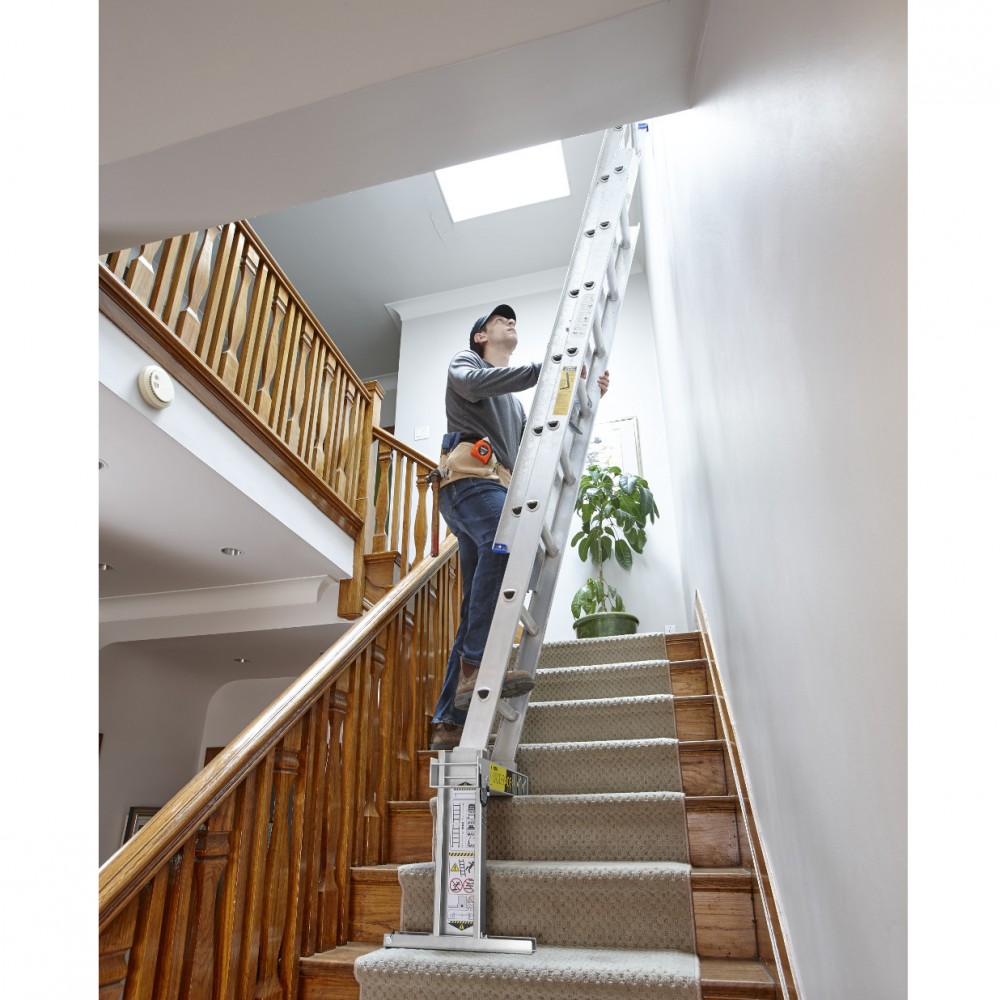Introduction
Painting the ceiling above stairs can be a tricky task. But with the right tools and steps, you can do it yourself. This guide will help you paint the ceiling above your stairs safely and effectively.

Credit: www.wikihow.com
Tools and Materials Needed
- Extension ladder
- Paint roller with an extension pole
- Paintbrush
- Painter’s tape
- Drop cloths
- Paint tray
- Ceiling paint
- Safety goggles
- Dust mask
- Plastic sheeting
Safety First
Always prioritize safety when working on stairs. Use a sturdy extension ladder and never overreach. Wear safety goggles and a dust mask to protect yourself from paint and dust.
Preparation Steps
Preparation is key to a successful paint job. Follow these steps to prepare your work area.
Clear The Area
Remove any furniture or items from the stairs area. This will give you more space to work and prevent any accidents.
Cover Surfaces
Use drop cloths to cover the stairs and any nearby surfaces. This will protect them from paint splatters.
Tape Off Edges
Use painter’s tape to tape off the edges of the ceiling. This will give you clean, sharp lines when painting.
Setting Up Your Ladder
Setting up your ladder correctly is crucial. Follow these steps for a safe setup.
Choose The Right Ladder
Use an extension ladder that is tall enough to reach the ceiling. Make sure it is stable and in good condition.
Position The Ladder
Place the ladder on a flat surface. Make sure it is not wobbling. If necessary, use a ladder stabilizer for extra support.
Check The Angle
The ladder should be at a 75-degree angle. You can check this by standing with your feet at the base and extending your arms. Your hands should just touch the rungs.
Painting the Ceiling
Now that you are ready, it is time to start painting. Follow these steps for a smooth finish.
Load Your Roller
Pour the paint into the paint tray. Load your roller with paint. Make sure it is evenly coated but not dripping.
Start Painting
Begin at one corner of the ceiling. Use the roller to apply the paint in a “W” pattern. This will help you get even coverage.
Work In Sections
Work in small sections of about 3 feet by 3 feet. This will help you keep track of where you have painted and ensure even coverage.
Use A Paintbrush For Edges
Use a paintbrush to paint the edges and corners. This will give you a clean finish.
Second Coat
Once the first coat is dry, apply a second coat if needed. This will give you a more even finish.
Clean Up
Cleaning up is an important part of the process. Follow these steps to clean up your work area.
Remove Tape
Carefully remove the painter’s tape. Do this while the paint is still slightly wet to avoid peeling off any paint.
Clean Your Tools
Wash your paintbrushes and rollers with warm, soapy water. This will keep them in good condition for future use.
Dispose Of Drop Cloths
Dispose of any disposable drop cloths. If you used reusable ones, shake them out and wash them if necessary.
Tips and Tricks
Here are some extra tips to help you with your painting project:
- Use a high-quality paint for a better finish.
- Keep the paint tray close to avoid drips.
- Take breaks to avoid fatigue.
- Use a bright light to check for missed spots.
- Paint in daylight for the best visibility.

Credit: diy.stackexchange.com
Frequently Asked Questions
What Tools Are Needed For Ceiling Painting?
You need a ladder, roller, brush, paint tray, and drop cloth.
How To Safely Reach High Ceiling?
Use an extendable ladder or scaffolding to safely reach high areas.
Should I Prime The Ceiling First?
Yes, priming helps the paint adhere better and covers stains.
What Type Of Paint Is Best?
Use flat or matte paint for ceilings to reduce glare.
Conclusion
Painting the ceiling above stairs can be a challenging task. But with the right tools and steps, you can do it yourself. Remember to prioritize safety and take your time. Follow this guide for a successful paint job. Happy painting!